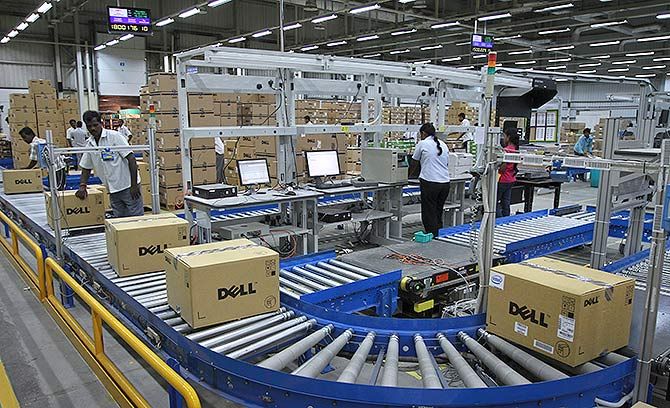A task force set up by the Ministry of Electronics and Information Technology (Meity) for transforming India into an “electronic and semiconductor products” nation is on the verge of finalising its report, which is likely to recommend an allocation of Rs 44,000 crore between 2024 and 2030 to support homegrown companies in their quest to develop products and build global brands.

The task force's recommendations include significant incentives: Rs 15,000 crore dedicated to electronic products (systems), Rs 11,000 crore for semiconductor products, and Rs 18,000 crore for various other incentives such as talent development, common infrastructure, logistics, and technology & IP (intellectual property) acquisition, a member of the panel revealed.
However, these new recommendations will require government approval.
If sanctioned, the allocation would be comparable in scale to the production-linked incentive (PLI) scheme for mobile devices and electronics.
Set up in January this year, the task force is chaired by Ajay K Sood, the principal scientific adviser to the government.
The team comprises members like Ajai Chowdhry, founder of HCL and chairman of EPIC Foundation; Sunil Vachani, MD of Dixon Technologies; Sanjay Nayak, former MD of Tejas; Puneet Agarwal, CEO of VVDN Technologies; Aman Gupta, founder of BOAT; Pankaj Mohindroo, chairman of ICEA; Sushil Pal, joint secretary at Meity; and representatives from the Department of Telecommunications, Department of Science & Technology, and Department for Promotion of Industry and Internal Trade.
A key distinction in the task force’s proposal is its focus on benefiting Indian companies exclusively, a departure from the PLI scheme that involves significant participation from global players.
The task force has clearly defined the criteria for what constitutes an Indian company, emphasising that Indians must control 51 per cent of the company’s shareholding, the company should be headquartered within the country, and all global profits, financial benefits from product sales, technology transfer, IP licensing and investments should accrue to the Indian parent company.
Chowdhry elaborated on this stance: “Global companies have enough money to design and brand products.
"That is why we put in stiff conditions and transparently defined what is an Indian company so there is no confusion.”
He also emphasised the long-term vision of this initiative, acknowledging that making India a design and product leader is a 20-year journey, but one that must start now to “prevent the electronics import bill from surpassing that of oil”.
The task force is also advocating for the continuation of the PLI scheme for electronics manufacturing until 2030, augmentation of PLI schemes based on accrued learnings, a review of taxation policies to encourage research & development and testing activities, and promotion of Indian products through brand promotion and subsidies for international trade participation.
To further enhance the ease of doing business for global companies interested in designing their products in India, the task force has also proposed removing existing hurdles and finalising a strategy for managing and leveraging standard essential patents (SEPs) to protect domestic companies.
Moreover, the panel has identified 30 electronic products and 40 different kinds of chips that are essential for the country’s needs for designing and branding.
The report is set to highlight that the electronics market is expected to grow to $3 trillion by 2047, with exports accounting for $1 trillion of that market.












 © 2025
© 2025